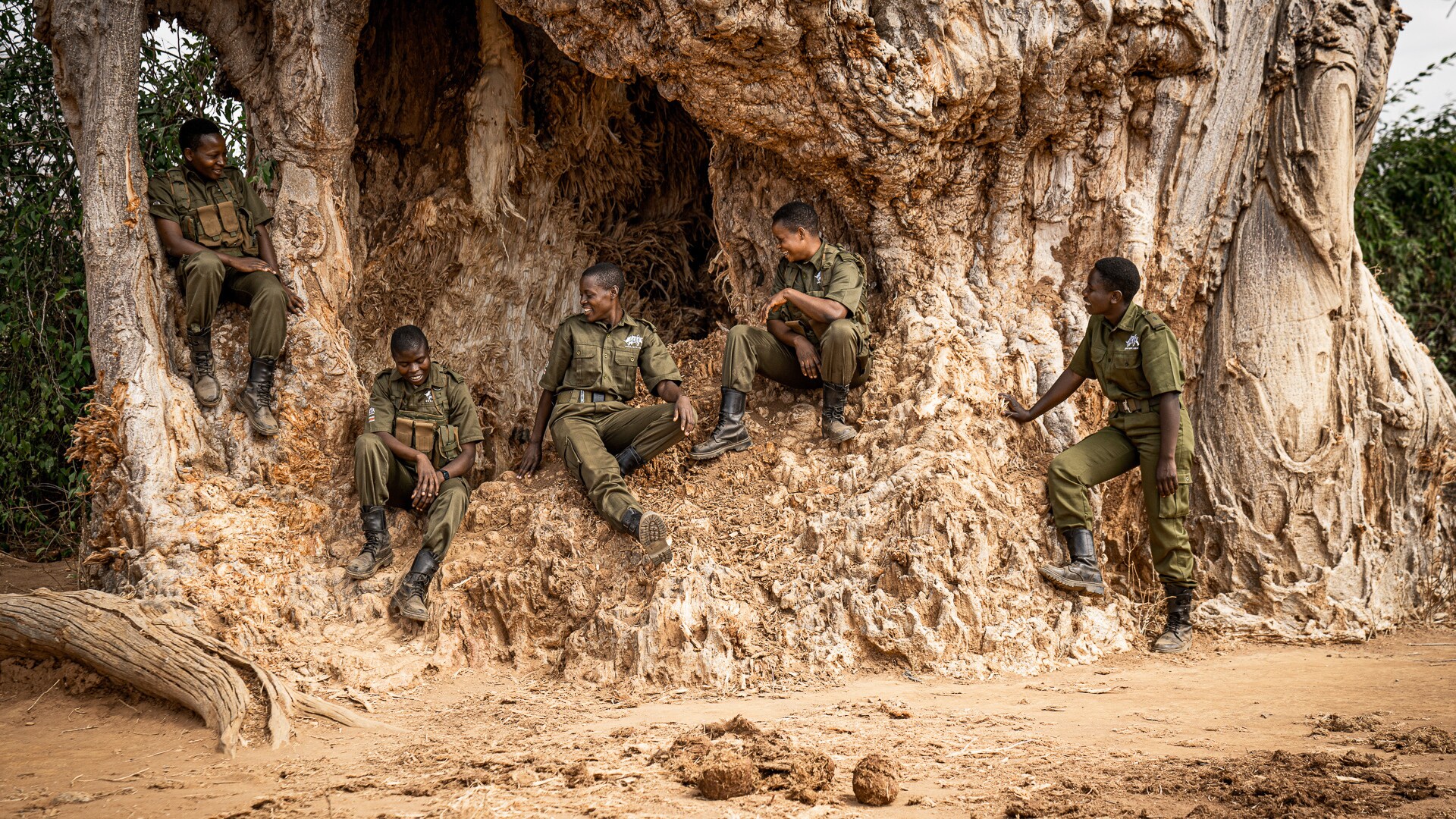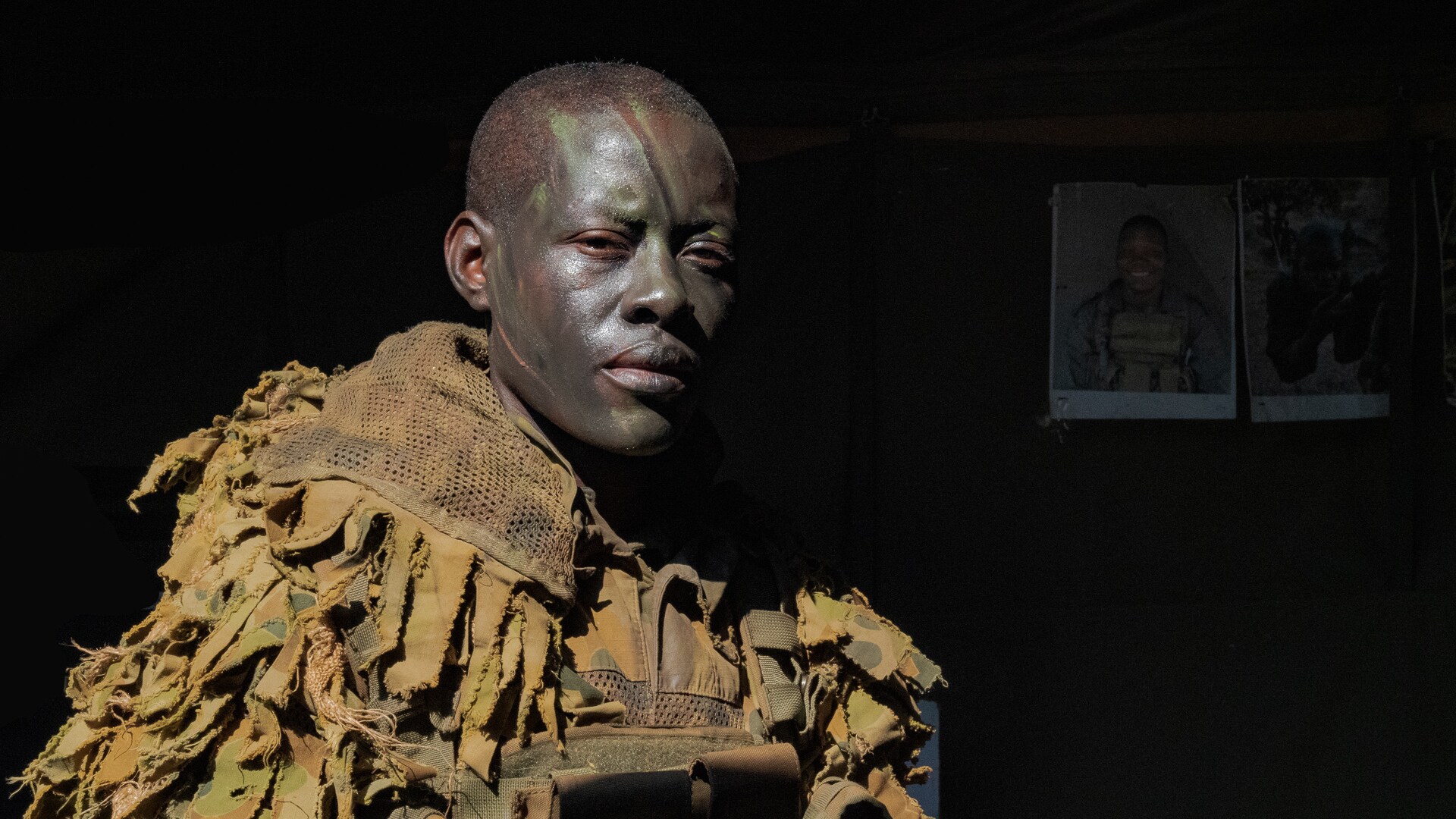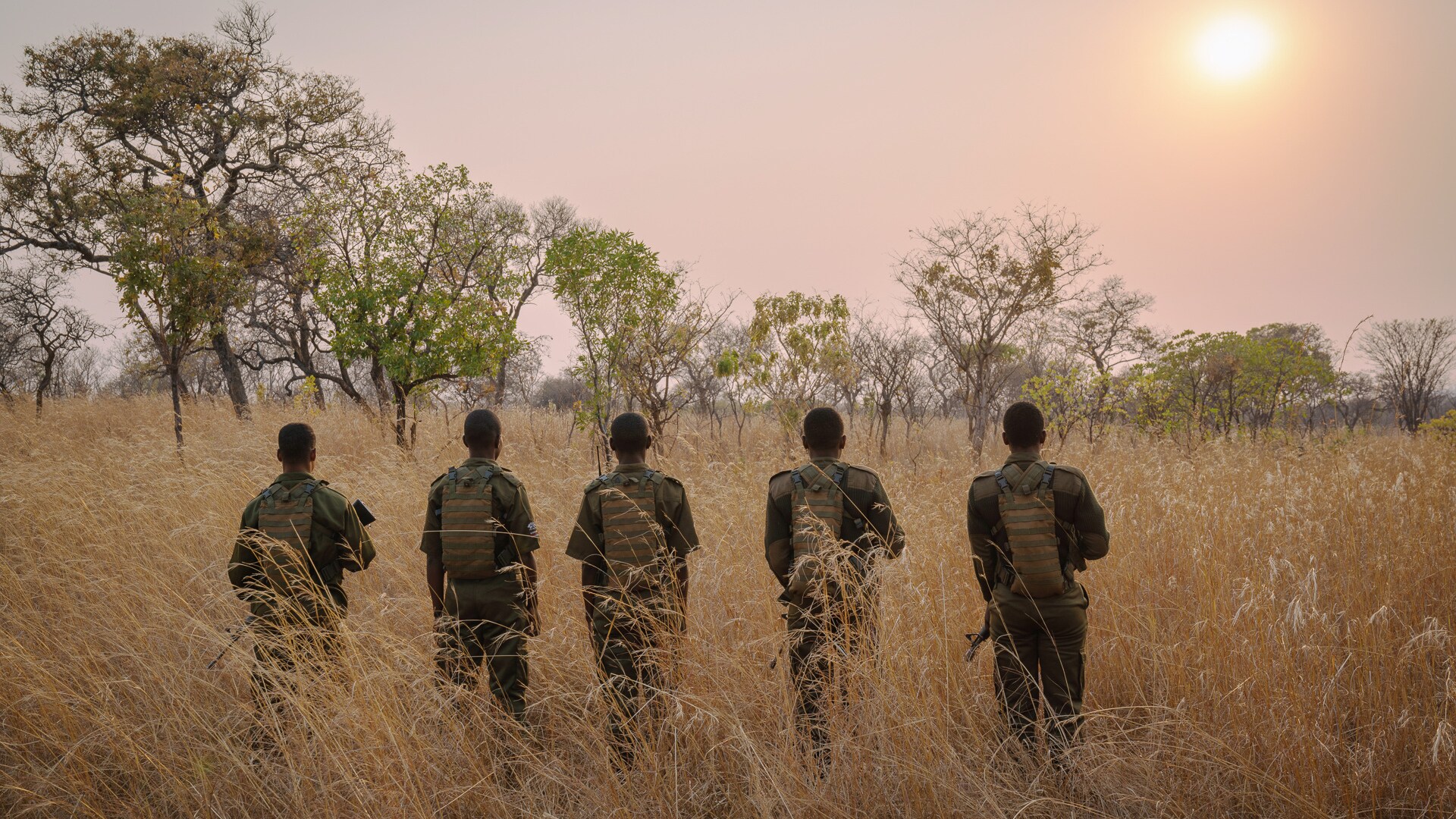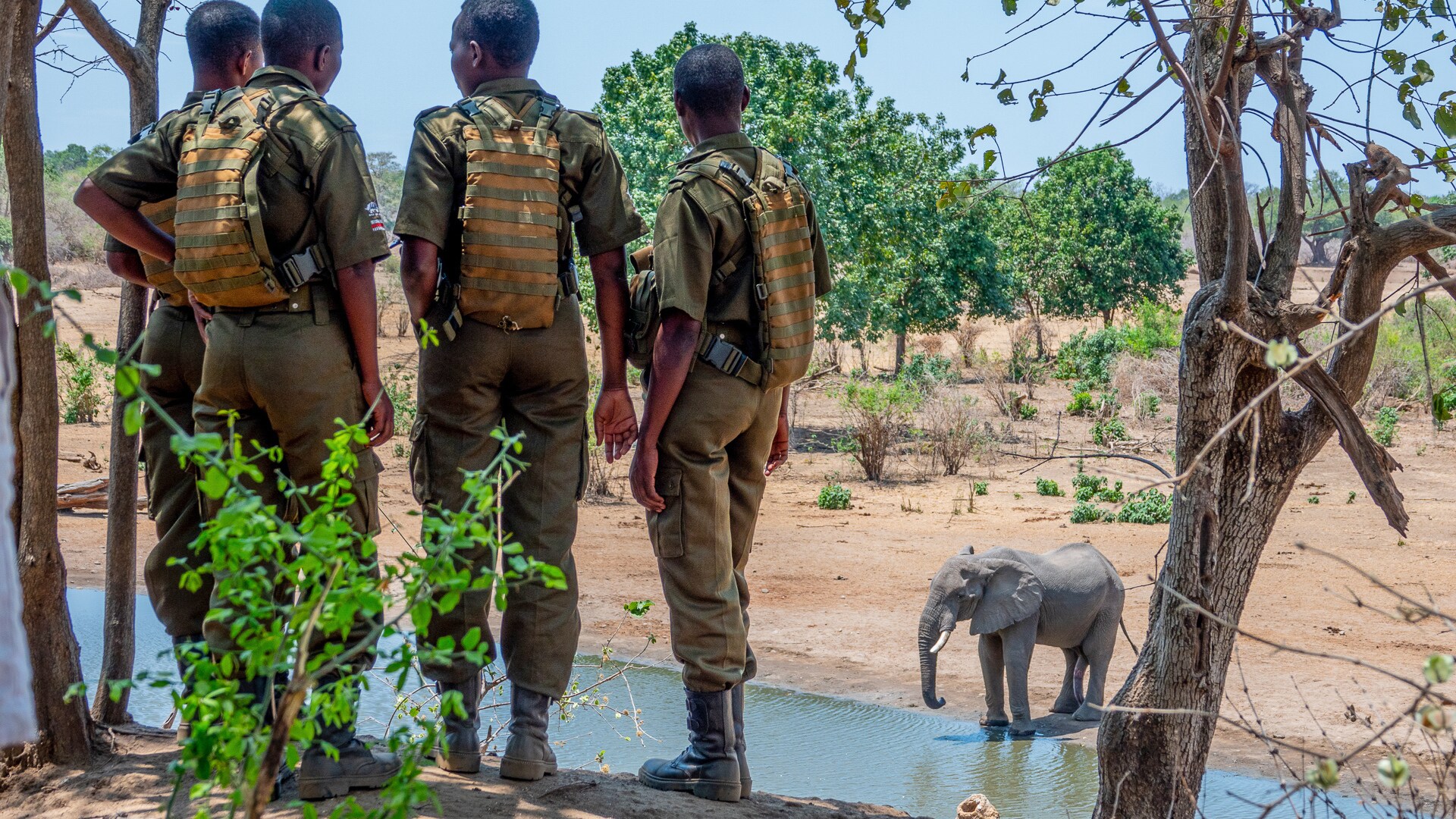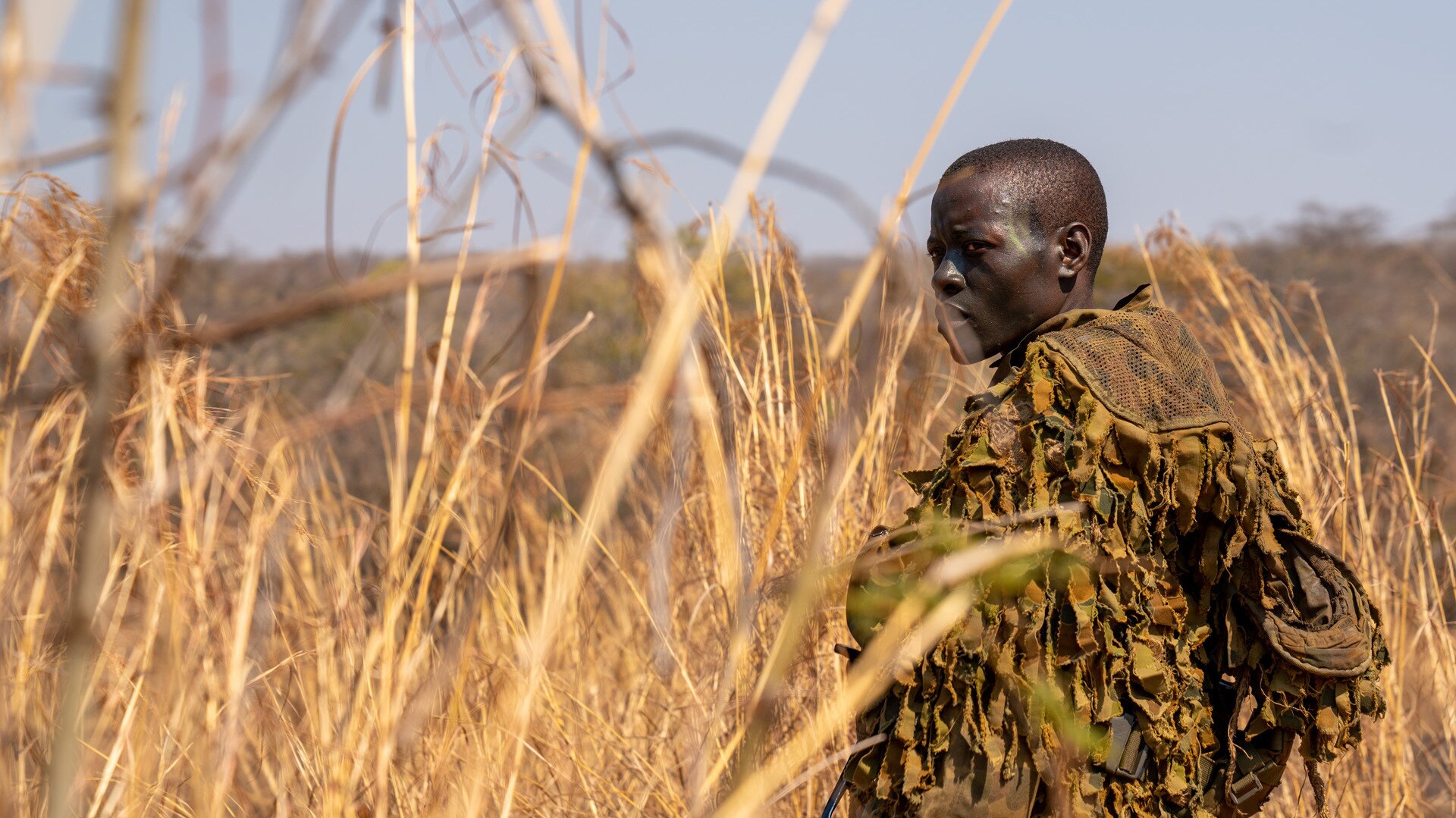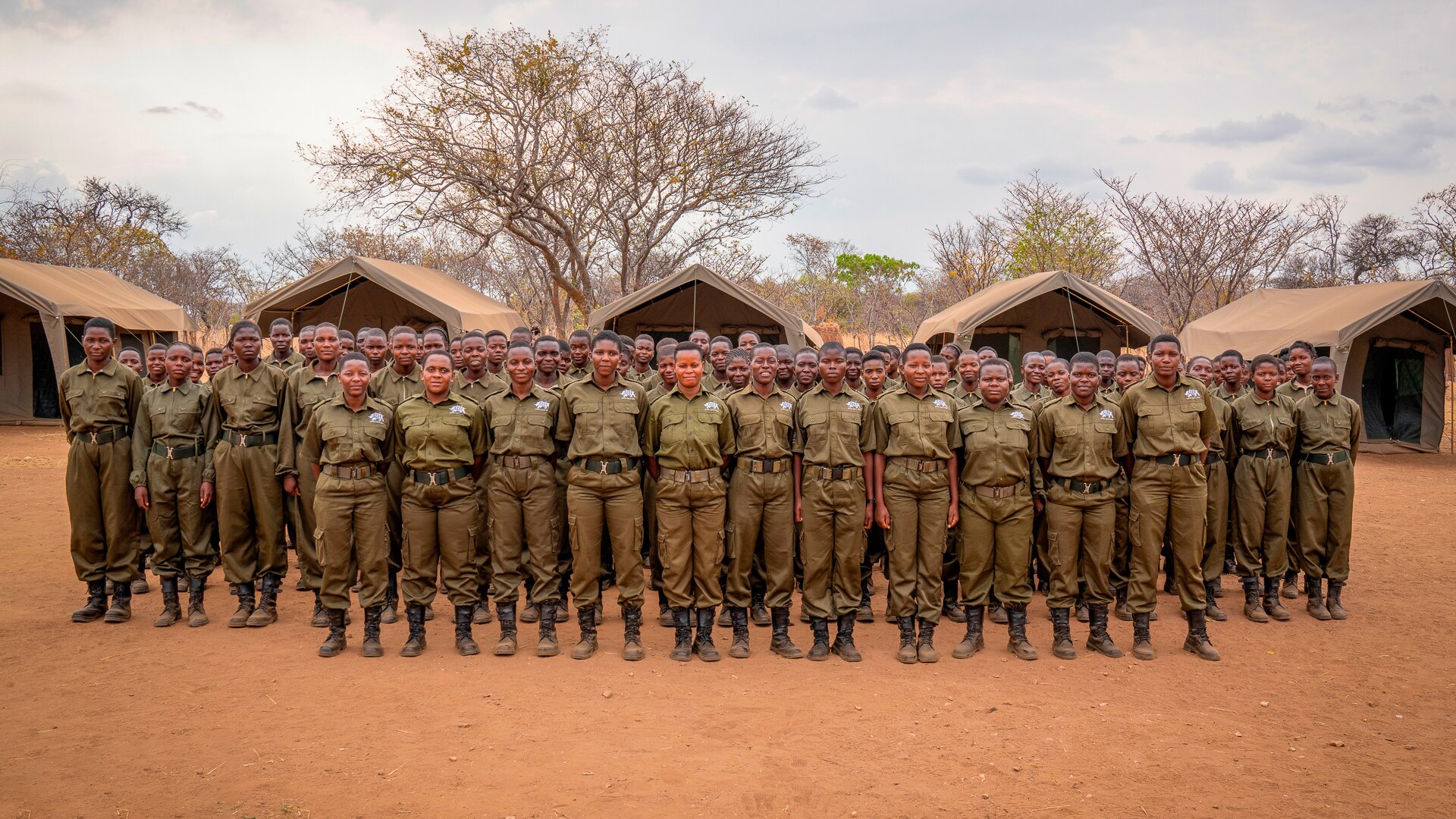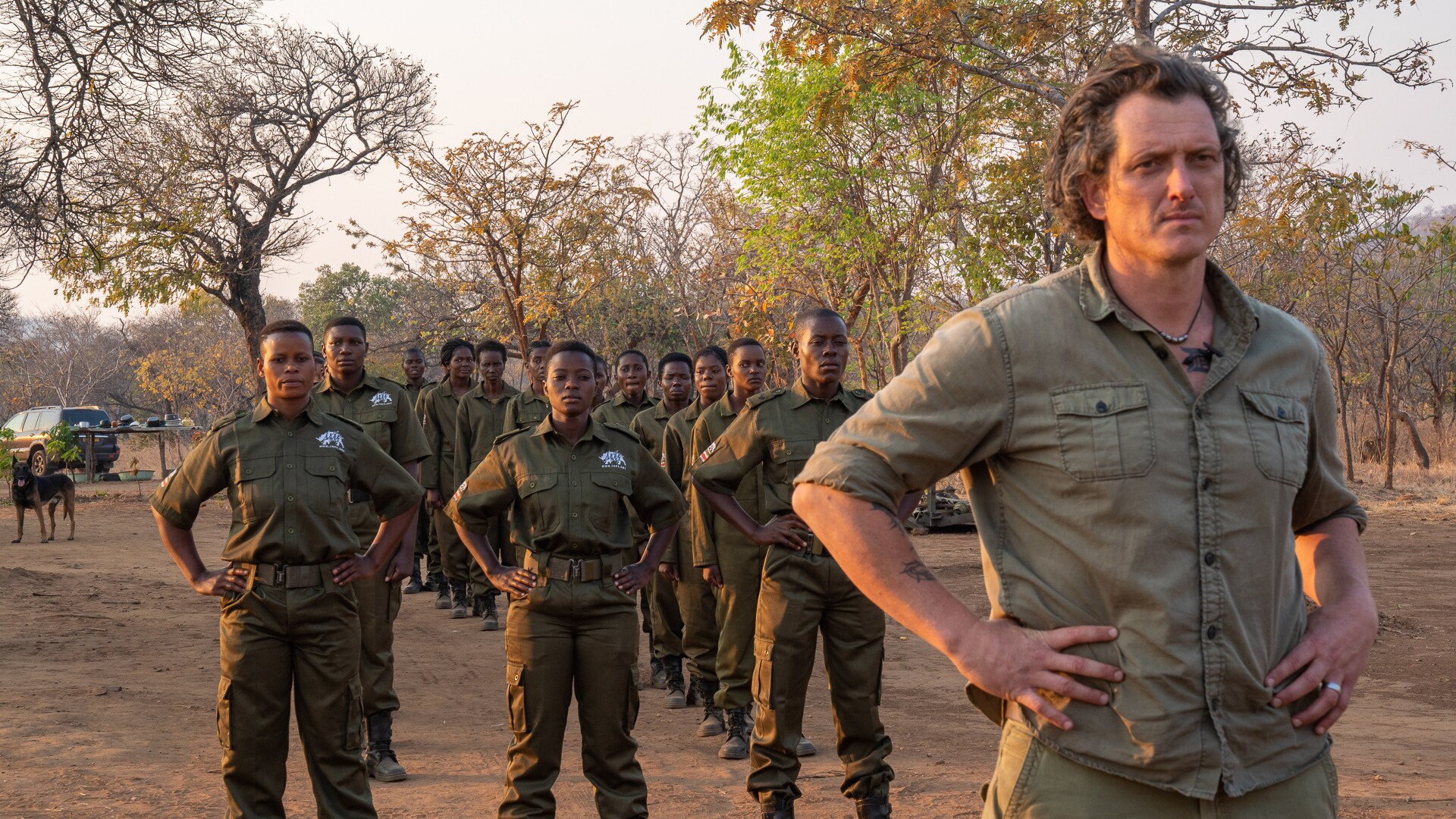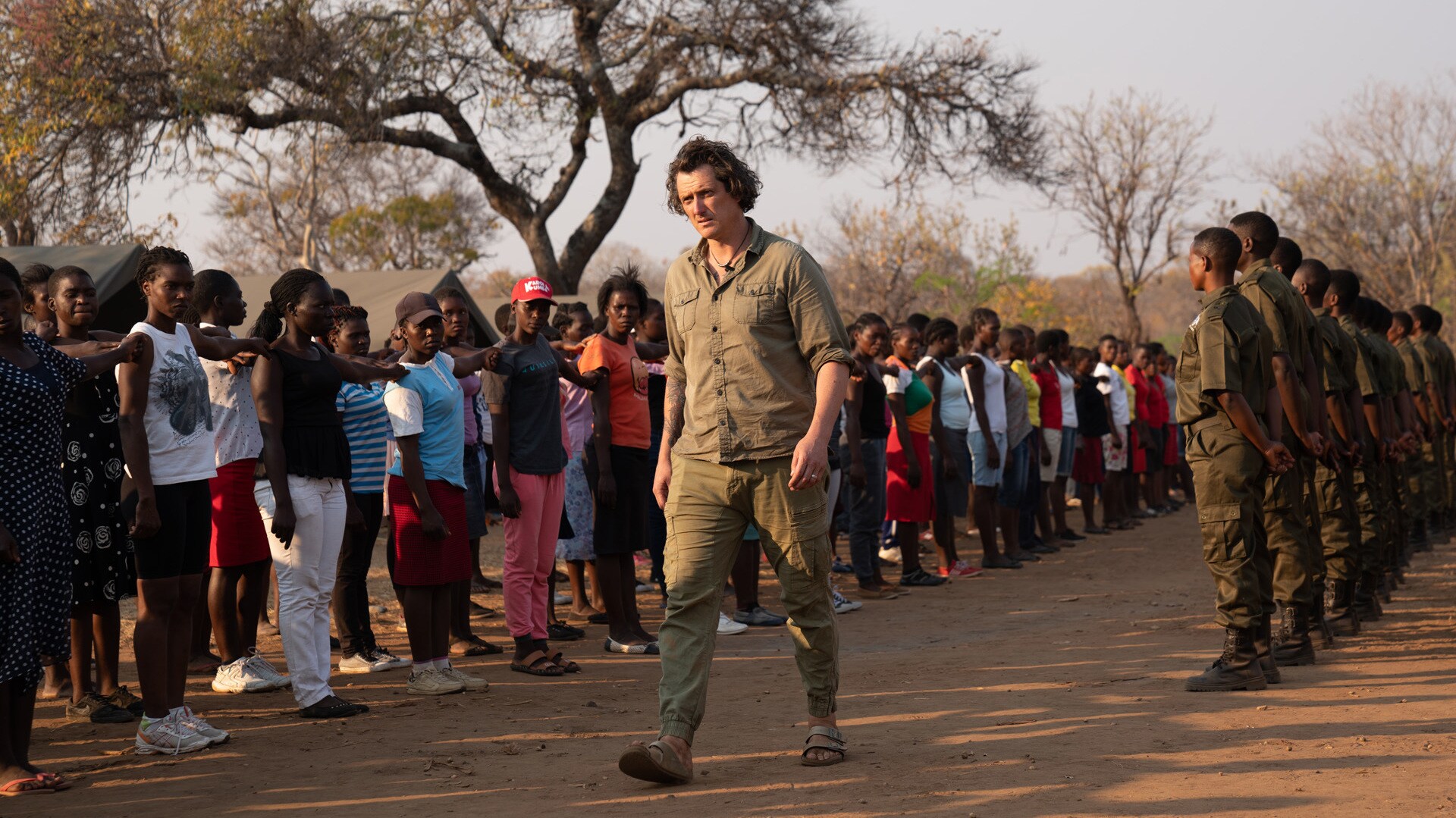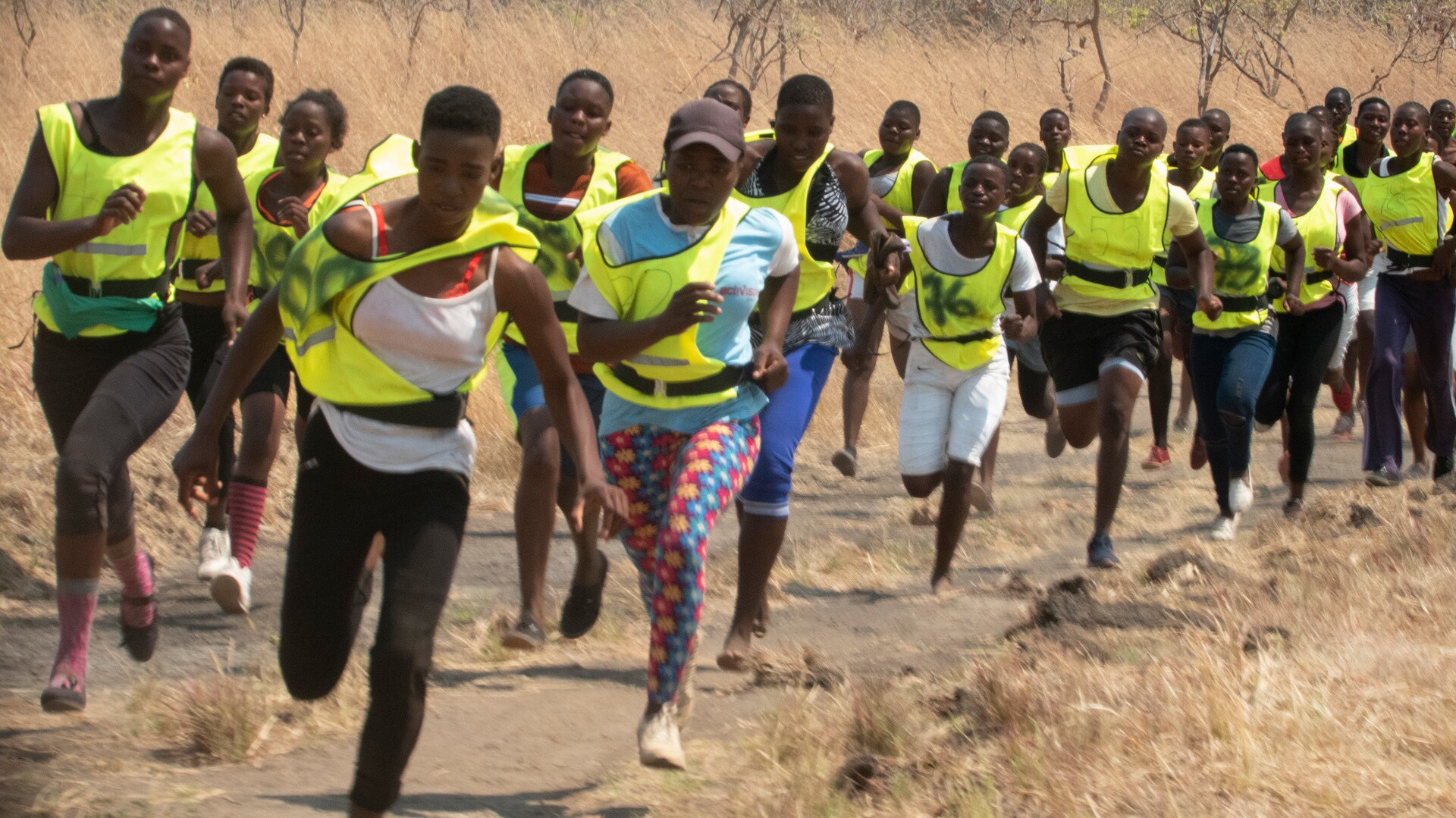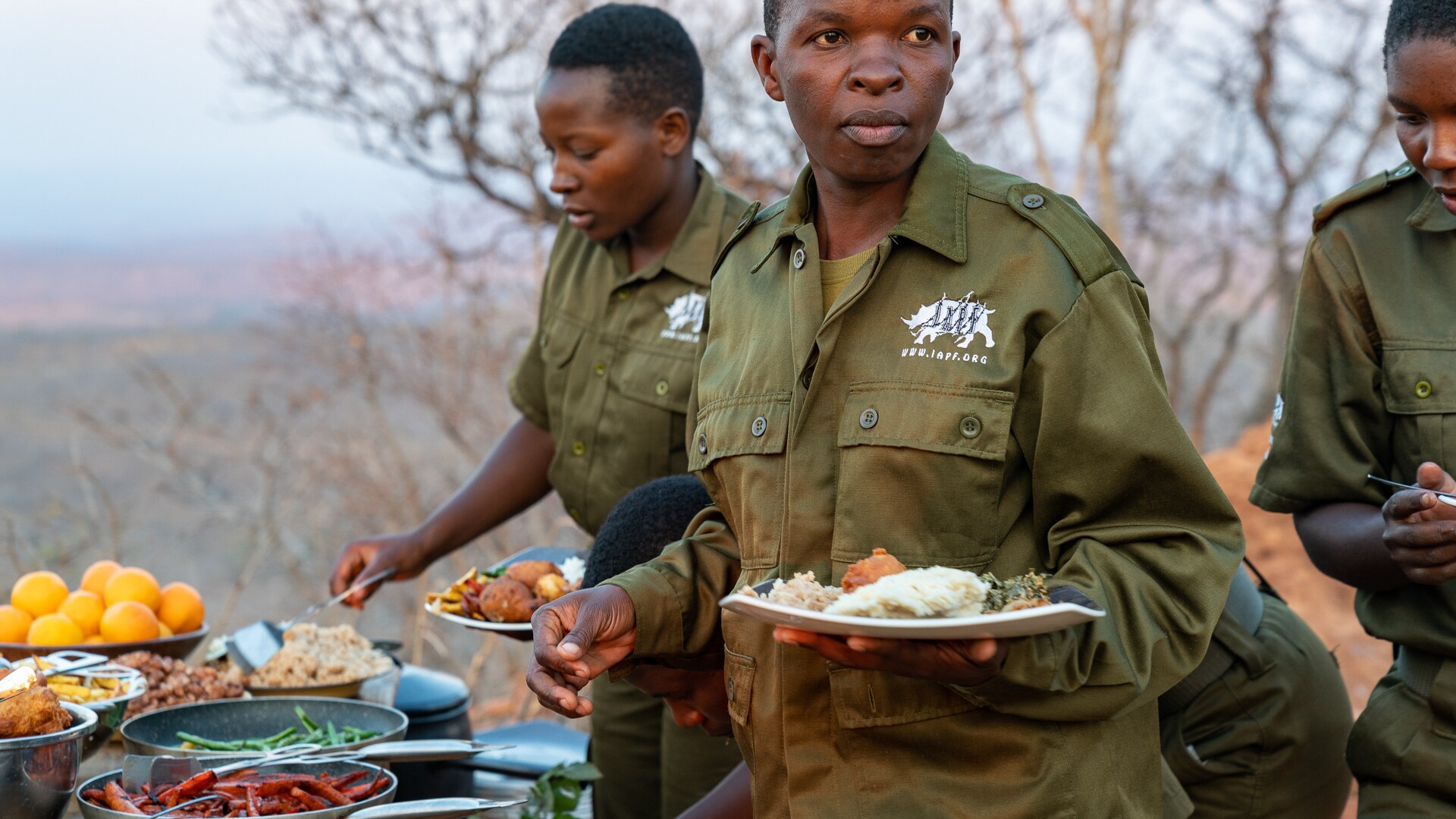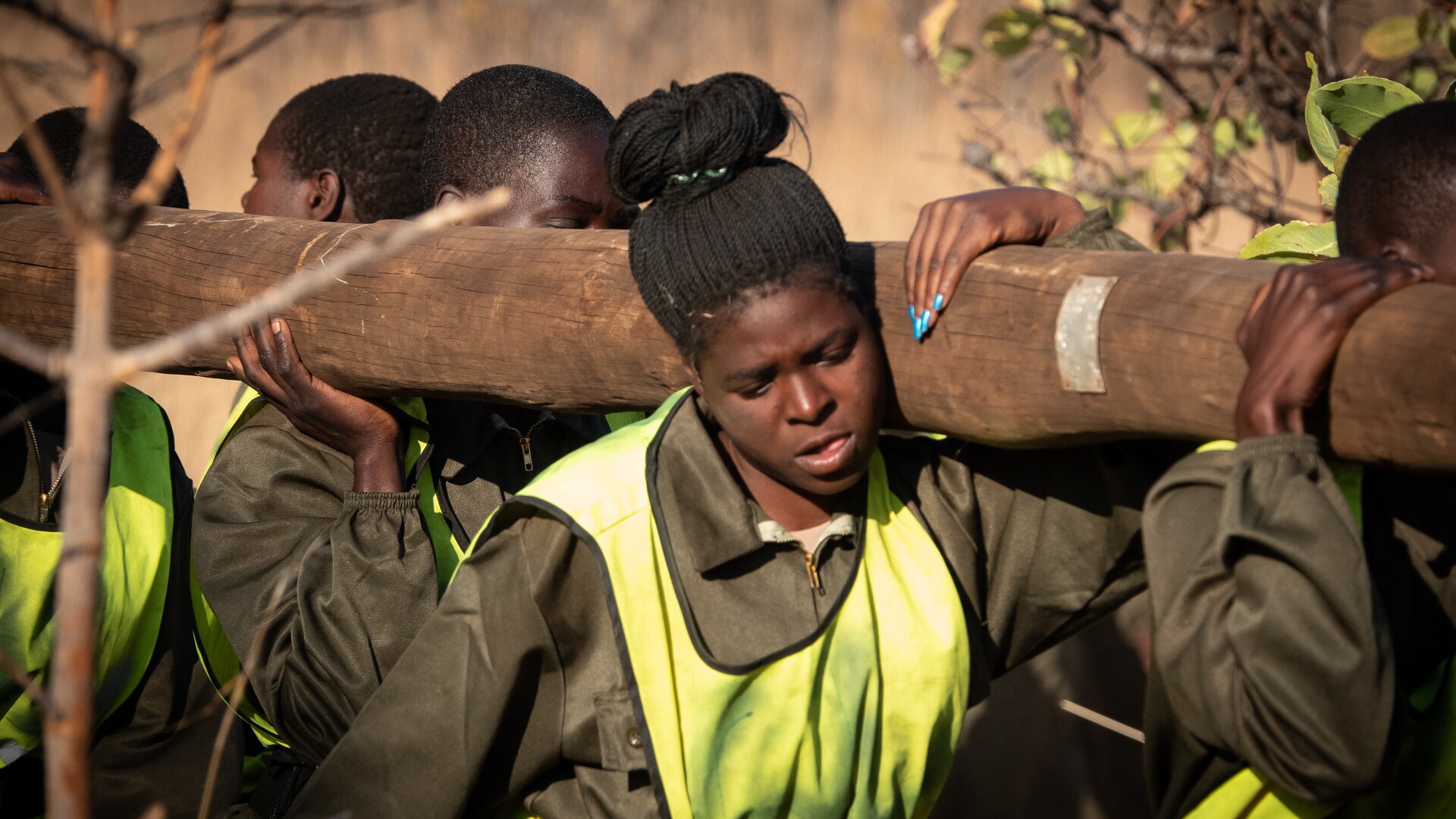Akashinga: The Brave Ones
With many of Africa’s key species, including elephants, reaching levels near extinction, Akashinga is a radical, new and highly effective weapon against poaching. Founded in Zimbabwe by former Australian special forces soldier and anti-poaching leader Damien Mander, the women-only team of rangers, drawn from the abused and marginalized, is revolutionizing the way animals are protected, communities are empowered— and its members’ own lives are being transformed. Mander’s innovative approach to conservation calls for community buy-in rather than full-on armed assault against poachers: If a community understands the economic benefits of preserving animals, then it will eliminate poaching without an armed struggle. Executive produced by three-time Academy Award winner James Cameron and directed by Maria Wilhelm, AKASHINGA: THE BRAVE ONES is a celebration of the courage, conservation and unorthodox thinking that’s leading to massive positive change.
Meet the Filmmakers
-
Maria Wilhelm
DIRECTOR AND PRODUCERMaria Wilhelm has executive produced the earth-conscious documentaries The Game Changers for Netflix and the Emmy-winning climate change series Years of Living Dangerously for Showtime and National Geographic, along with James Cameron’s Story of Science Fiction for AMC and other productions in tandem with James Cameron. She runs Earthship, focused on advocacy media, the Avatar Alliance Foundation and CAMERON Companies. In directing AKASHINGA: THE BRAVE ONES, she tells the story of an all-female fighting force battling the illegal hunting of elephants in Zimbabwe. Upcoming productions with National Geographic include Planet of the Whales and Mission OceanX. Wilhelm is a trustee of the African Wildlife Foundation and Woods Hole Oceanographic Institution and a former board member of The Explorers Club.
-
Kim Butts
PRODUCERKim Butts is the design director of the Avatar Alliance Foundation (AAF). Along with Akashinga: The Brave Ones, she produced “What Would the Ocean Say?” for World Ocean Day at the United Nations and “Not Reality TV,” a short on the climate crisis. Integral in a number of advocacy media projects produced by the AAF, Kim co-designed “James Cameron — Challenging the Deep,” an oceans exhibit prominent in Australia and New Zealand and set to tour internationally. Her oceans media installation featuring real-time exploration was showcased at TED 2019 in support of AAF partners Woods Hole Oceanographic Institution and OceanX.
-
Drew Pulley
PRODUCERDrew Pulley has directed and produced documentary content for National Geographic in over 30 countries across the globe. He’s crawled through caves on Easter Island, camped out in polar bear country, explored ancient temples and secret government facilities, tracked a pride of lions on foot, hovered over an erupting Russian volcano, galloped with the gauchos in Patagonia, repelled into caves in China, embedded with the military in Africa, interviewed former U.S. presidents and picked Bill Nye’s brain over a beer! Pulley’s most recent projects include a feature-length Everest documentary and an extreme weather chasing series.
-
James Cameron
EXECUTIVE PRODUCERJames Cameron is an acclaimed filmmaker, explorer and environmental advocate. As director, writer and producer he is responsible for some of the most memorable films of the past three decades: “The Terminator,” “Aliens,” “The Abyss,” “Terminator 2: Judgment Day,” “True Lies,” “Titanic,” and “Avatar.”
For 10 years “Avatar” was the highest grossing film in history with over $2.7 billion in global box office, beating the previous record holder, Cameron’s own film “Titanic,” which held that record for 12 years. Cameron's films have also earned numerous nominations and awards, most notably “Titanic”'s 14 Academy Award nominations (tied for the record) and 11 Oscars (also a record), including Cameron's own three Oscars for Best Picture, Best Direction and Best Editing. Cameron also won the DGA Award for directing “Titanic,” in 1998. Both “Titanic” and “Avatar” won the Golden Globe for Best Director and Best Picture. “Avatar” was nominated for nine Academy Awards and won three.
Over the last 20 years Cameron developed cutting edge 3D camera systems for movies and documentaries, as well as for broadcast sports and special events. He was at the vanguard of the 3D renaissance that has transformed the movie industry in recent years.
“Avatar” was shot with cameras developed by Cameron’s company, CPG, in collaboration with Sony. “Avatar” won the Oscar for Best Cinematography, and in three out of four years (from 2009 to 2012), the cinematography Oscar was won by films using Cameron’s 3D systems (“Avatar,” “Hugo,” “Life of Pi”).
In 2018, working with Sony again, Cameron developed a 3D version of the Venice CineAlta camera for the filming of the “Avatar” sequels. The system packs two Venice 6K HDR cameras, two 10:1 zoom lenses and an 11-axis motion-control system into a 38 pound hand-held 3D rig, which Cameron operates personally during filming.
He has also developed unprecedented deep ocean exploration vehicles, lighting and 3D camera equipment. Cameron has led eight deep ocean expeditions from 1995 to 2012, including three to the Titanic wreck. He has dived that wreck 33 times, and spent over a hundred hours piloting small remotely operated vehicles of his own design inside the wreck, to create an archeological survey of the interior. His research has led to a definitive understanding of the forensics of the Titanic’s sinking.
Other expeditions included exploration of the German battleship Bismarck in 2002, and hydrothermal vents in the Atlantic, Pacific and Sea of Cortez in 2002 and 2003. He has spent over 3000 hours underwater, and made 75 deep submersible dives. He is a member of the Deep Submersible Pilots Association.
In 2012, Cameron led his eighth deep ocean expedition to some of the deepest trenches in the world. On March 26, 2012, he set the world’s solo deep diving record of 35,787’ in the Challenger Deep in a vehicle of his own design.
Cameron is a National Geographic Explorer in Residence, and recipient of their most prestigious award, the Hubbard Medal, as well as the Explorer’s Club medal for Explorer of the Year.
Cameron is also passionately involved in sustainability, having founded the Avatar Alliance Foundation to take action on climate change, deforestation, indigenous rights, ocean conservation and sustainable agriculture. His production company, Lightstorm Entertainment, installed a 1-megawatt solar array on the roofs of their soundstages at Manhattan Beach Studios, to generate all the power for the “Avatar” sequels. The production is the first entirely vegan-catered motion picture set, for environmental reasons, and is dedicated to being as green and sustainable as possible.
James and Suzy Amis Cameron, both environmental vegans, founded the Plant Power Taskforce to promote awareness of the impact of animal agriculture on the environment and climate. The Camerons are the founders and majority owners of Verdient, one of the largest pea protein extraction facilities in North America, located in Saskatchewan. They are rapidly expanding their business activities in the field of plant-based proteins, organic agriculture, and sustainable food products. They operate organic farms in both Canada and New Zealand, to research sustainable agronomy practices.
Cameron has completed two years of principal capture on “Avatar 2”, “3” and “4”, and is currently shooting live action for those films in New Zealand.
Meet the Film Subjects
-
Damien Mander
ENVIRONMENTALIST; FOUNDER AND CEO, INTERNATIONAL ANTI-POACHING FOUNDATIONDamien Mander is an Iraq war veteran who served as a naval clearance diver and special operations sniper for the Australian Defence Force. In 2009 while traveling through Africa, he was inspired by the work of rangers and the plight of wildlife. Liquidating his life savings, he established the International Anti-Poaching Foundation (IAPF) to be the last line of defense for nature. Over the past decade the IAPF has scaled to train and support rangers who now help protect over 10 million acres of African wilderness.
In 2017 Mander founded “Akashinga - Nature Protected by Women,” an IAPF program that has already grown to over 170 employees, becoming the only group of nature reserves in the world to be protected by women. Their goal is to employ 1,000 women by 2025, protecting a network of 20 nature reserves, all managed by the IAPF.
Mander is the winner of the 2019 Winsome Constance Kindness Gold Medal, a prestigious international recognition for services to animals and humanity. Past recipients include Sir David Attenborough and Dr. Jane Goodall. Mander was featured in the newly released James Cameron documentary “The Game Changers” and is now releasing another documentary with Cameron and National Geographic about his work with the women of Akashinga.
His TEDx talk at the Sydney Opera House has been viewed over 7 million times and translated into 27 languages. He has spoken at the United Nations, was featured in June 2019’s National Geographic magazine, has appeared three times on “60 Minutes” and was recently recognized by the Dutch government as a Gender Champion for 2019.
Mander lives in Zimbabwe and has just returned from a sellout tour across North America as a resident speaker for National Geographic Live.
-
Petronella Chigumbura
AKASHINGA RANGERMy name is Petronella Chigumbura and I am 30 years old. I am a single mother of two and live in Zimbabwe’s Nyamakate Hurungwe District, which is in the rural areas of Mashonaland West. I was the youngest of seven and both of my parents passed away before I was able to finish my education.
In 2010 I got married thinking that it was the solution to having a better life. The first years of my marriage were good, but problems started soon after I gave birth to my second child. My husband was not taking responsibility for his family and I struggled to feed myself and my two kids. When I discovered my husband was having an affair, he ran away, leaving me with our children. I started selling tomatoes and vegetables in order to survive and had to make the difficult decision to move away and start a new life.
We divorced in 2016, but with my two young children, no money or a place to stay, getting a divorce was not easy. After the divorce, I moved in with my brother, but the most difficult part was that I had to leave my children with their grandmother because no one was capable of taking care of them.
In August 2017 I was told about the Akashinga program from a local counselor — while the training would be hard, I would be in a community with other women from disadvantaged backgrounds. With my brother’s encouragement, I jumped at the opportunity to finally be able to stand on my own two feet and take good care of myself and my kids. I am now the breadwinner of my family and am proud of myself.
-
Nyaradzo Hoto
AKASHINGA RANGERMy name is Nyaradzo Auxillia Hoto. I am 28 years old with an 8-year-old daughter named Tariro. I grew up in Huyo Village, Nyamakate, located in Zimbabwe’s mighty Zambezi Valley. Growing up, I had eight siblings and our family was very poor. Even though I was very bright at school, my parents did not have enough money for me to continue my education and I was forced to drop out. Out of desperation I got married at the early age of 20 — there was no other option for me to survive.
Nobody would wish to be in the marriage that became my life. My husband was a violent and abusive man that preyed on my vulnerabilities. He was not supportive, he did not allow me to fulfill my dreams and he exploited everything about me for his own advantage. I became a slave for his family and was forced into hard labor with nothing in return. In 2014 I built up the courage to divorce my husband and leave this life of abuse. It was a difficult decision, and back home, my beloved father had passed away, so that meant I would have to then take over the role of looking after my family of eight. To sustain a daily living for my family, I did gardening and sold tomatoes while running the household in every spare moment I had.
In 2017 an opportunity came about to join the newly formed Akashinga program as a ranger. As a woman, I was focused on using Akashinga as a tool to fight my battle toward a better life. Although it was tough, I passed selection and became a ranger. I worked hard and saved my money, and after one year I bought a block of land in our community. I went on to get my driver’s license, a big deal for women in rural Africa, and I am now independent and can stand on my own two feet. I send my child to school and even support my two young brothers to complete the education I once hoped for.
My job and duty as a ranger have totally transformed my life. I could have never imagined the braveness in me and I now have a strong passion and love for animals and nature. Akashinga is also helping me build up the future of the wildlife conservation sector. Now I am part time at university, undertaking a bachelor’s degree in science, wildlife, ecology and conservation. After my studies, I dream to be a world leader in wildlife conservation.
I am strong today because I have been weak; I am fearless today because I have been afraid.
Zimbabwe - Akashinga Rangers, Abigail Makanyaire, Juliana Murumbi, Petronella Chimumbura, Wadzana Munemo and Nyaradzo Hoto. (Kim Butts)
ofZimbabwe - Akashinga Rangers, Abigail Makanyaire, Juliana Murumbi, Petronella Chimumbura, Wadzana Munemo and Nyaradzo Hoto. (Kim Butts)
ofZimbabwe - Petronella Chigumbura. (Kim Butts)
ofZimbabwe - Petronella Chigumbura. (Kim Butts)
ofZimbabwe - Akashinga Rangers in a field. (Kim Butts)
ofZimbabwe - Akashinga Rangers in a field. (Kim Butts)
ofZimbabwe - Akashinga Rangers with elephant at watering hole. (Kim Butts)
ofZimbabwe - Akashinga Rangers with elephant at watering hole. (Kim Butts)
ofZimbabwe - Petronella Chigumbura in Gilly Suit. (Kim Butts)
ofZimbabwe - Petronella Chigumbura in Gilly Suit. (Kim Butts)
ofZimbabwe - Assembly during Akashinga recruit training. (Kim Butts)
ofZimbabwe - Assembly during Akashinga recruit training. (Kim Butts)
ofZimbabwe - Damien Mander with Akashinga recruits. (Kim Butts)
ofZimbabwe - Damien Mander with Akashinga recruits. (Kim Butts)
ofZimbabwe - Damien Mander with Akashinga Rangers and recruits. (Kim Butts)
ofZimbabwe - Damien Mander with Akashinga Rangers and recruits. (Kim Butts)
ofZimbabwe - Akashinga recruits training. (Kim Butts)
ofZimbabwe - Akashinga recruits training. (Kim Butts)
ofLearn what you can do to support Akashinga and the International Anti-Poaching Foundation.
The International Anti-Poaching Foundation (IAPF) is a nonprofit organization focused on preservation of the natural world. The IAPF’s powerful and innovative approach to community-led conservation via the Akashinga all-female conservation model represents their investment in women as protectors of both their communities and nature. Learn more about how you can support the rangers and IAPF's on-the-ground solutions to safeguard iconic African wildlife on their website.
Maintaining Earth’s biodiversity is critical. National Geographic Society has created a collection of educational resources for grades 3 - 12+ to discuss poaching, its history, animals being targeted, and anti-poaching efforts to protect wildlife and wild places. Use this collection to learn how to maintain Earth’s biodiversity and protect ecosystem services, which make life possible.
